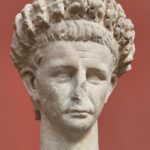Emperor Vespasian was known for his intelligence, sympathetic manner, and commanding skills. In the case of natural disasters, he supported poorer senators or equites. Generally, he was generous towards writers and rhetorics, who were paid 1000 gold a year. The first to receive such a grant from the ruler was Quintilian – a public teacher. Pliny the Elder, in turn, his main work “Natural History” was written during the reign of Vespasian, and he dedicated it to the son of the emperor, Titus.
Vespasian had a completely different opinion about philosophers, whom he considered unmanly and whining. The sages, according to his opinion, spoke a lot and unreasonably. They often expressed their lean about the time of the Republic, which strongly irritated Vespasian. The emperor threatened to restore the old laws that were to reconcile philosophers. As it turned out during the reign of Vespasian, only one thinker was condemned to death – it was Helvidius Priscus, who repeatedly opposed the politics of the emperor. Ruler tried to ignore public slanders at his address; he even once said: “I will not kill a dog that barks at me”. Eventually, however, after the second banishment, Priscus was slain on the order of Vespasian.
In addition to the case described above, Emperor Vespasian was extremely respected by people (he suffered only once – in Alexandria – when the turnips were thrown at him). According to Suetonius, he respected even the opposition. He endured all the remarks and jokes of his clients with patience and respect. Even when a certain Licinius Mucianus, a man suspected of homosexual tendencies, showed no respect to the emperor, he did not let himself be publicly humiliated by the Roman, but only privately expressed himself: “I at least am a man”.
Despite the fact that the emperor was considered too economical, and sometimes miserly, he tried to give most of the people of Rome some benefits. A lot of money was spent on public works and renovations: a new forum, the Temple of Peace, public baths and a huge Colosseum were built.
Finally, it is worth adding that in some Romance languages, urinals are named after the emperor’s name: in Italian, it is called vespasiano, and in French vespasien. This probably results from the fact that Vespasian restored the tax on urine, which already existed during the reign of Nero. In Roman public toilets, urine flowed into large, amphora-shaped tanks. Then it was sold as valuable raw material, needed for tanning leather and dyeing fabrics. The Emperor decided that the state should derive income from these transactions.







